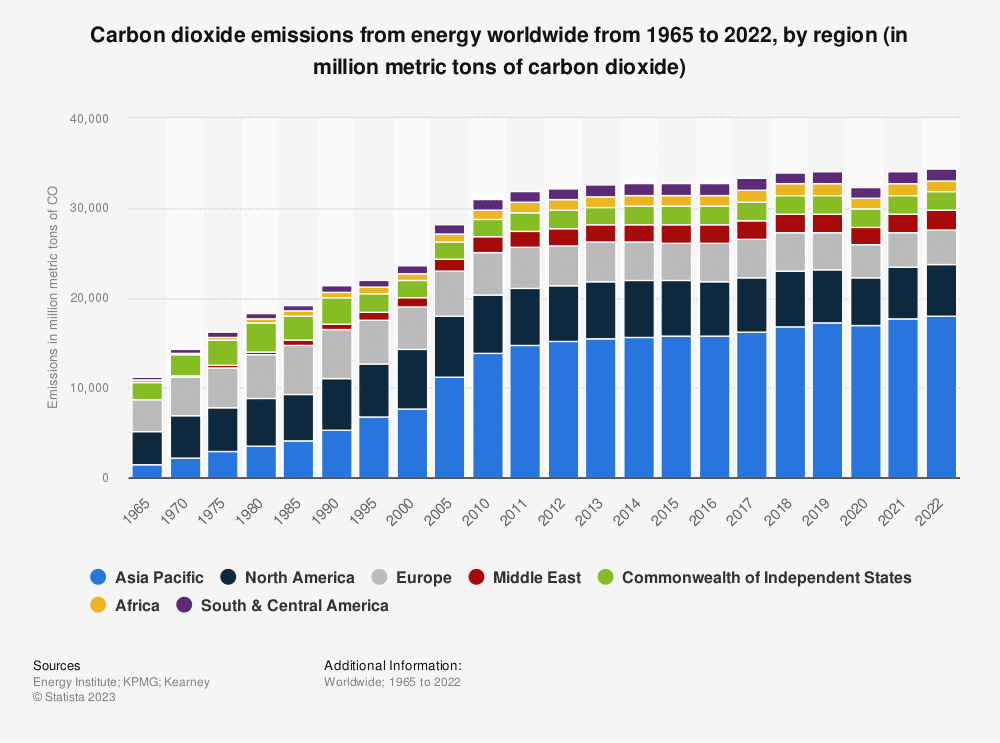In a groundbreaking deal, a trio worked together to bring the carbon market to the next level: a carbon reduction solutions provider Carbonbase, HBAR Foundation, and ImpactX. They’re launching Asia’s first digital native carbon registry – the Global Climate Registry (GCR).
Carbonbase is a climate tech company focusing on providing innovative tools for carbon emission calculation and reduction using advanced technologies. Their goal is to enable effective climate action and has helped large companies such as Schneider Electric, Porsche, and Mercedes, among others in their climate transition journey.
The HBAR Foundation supports the creation of Web3 communities built on the Hedera public network by helping builders and creators. ImpactX harnesses the power of digital tools and networks to tackle climate change and offer sustainable solutions to environmental challenges.
Their collaboration seeks to develop a next-gen carbon credit market in Asia-Pacific (APAC). Emphasizing their goal, Carbonbase’s CEO and Founder Max Song remarked during the announcement that:
“By leveraging the robust partnerships of the Hedera network and ImpactX’s visionary product approach for global NGOs, we aim to co-create a next-gen carbon market infrastructure… This innovation [GCR] will boost transparency, credit integrity, and significantly drive market growth, propelling global carbon reduction efforts.”
Simplifying and Boosting Carbon Credit Market in Asia
The APAC region was responsible for over 50% of global carbon emissions in 2022. However, it doesn’t have its own local carbon registry that can facilitate efficient carbon emission reduction projects.
According to Statista, the APAC region emitted around 18 billion metric tons of CO2 last year, up 2% from 2021. That amount is more than the combined emissions of all other regions for the same year.

The new registry will offer a digital-native experience for carbon project developers to register, auditors to verify, and buyers to purchase carbon credits.
Built on the Hedera Hashgraph network, the carbon registry provides transparent and publicly accessible solutions for emission reduction projects. As such, it offers open access to verified carbon credits.
Leveraging the Hedera Hashgraph network, carbon credit project developers can gain recognition while providing buyers with improved data reporting.
GCR will introduce an innovative framework that simplifies accurate MRV of carbon credits, reshaping the carbon market while encouraging more engagement from companies, industries, and governments to collectively fight climate change.
ImpactX has been in the service of global non-governmental organizations by offering digital tools and operational frameworks.
The company believes that a blockchain-based registry can help boost carbon reduction projects that generate high-quality carbon credits. Their aim is to “offer both project developers and carbon credit purchasers a seamless journey”.
Unlocking a New Era of Transparency and Trust
The digital native registry will employ the work of The Institute of Electrical and Electronics Engineers (IEEE)’s Committee Standards on MRV Standards for Climate Action as its methodology research counterpart.
IEEE is the world’s largest technical professional organization advancing technology for humanity, boasting 400,000+ members in over 160 countries. Its global network of technology experts drives inventive solutions to address critical global challenges with 1,300 industry standards.
Working with IEEE will allow GCR to help carbon initiatives to measure, report, and verify their impacts credibly and cost-effectively.
According to an expert, GCR marks a significant stride in the intersection of green finance, blockchain technology, and climate change.
In March last year, the International Emissions Trading Association issued guidelines on blockchain use in carbon markets. As the main lobby group for VCM, IETA’s aim is to establish a functional framework for trading carbon credits.
Speaking for HBAR Foundation, the company’s VP of Sustainability and ESG noted that it’s crucial that standards are operated in a public ledger that’s easy for project developers to use. He further said that:
“GCR will enable digital MRV, streamline project enablement and improve carbon credit management, unlocking a new era of transparency, trust, and impact in the fight against climate change.”
In a transformative collaboration, Carbonbase, HBAR Foundation, and ImpactX are to revolutionize Asia’s carbon market with the launch of the GCR, a pioneering digital native carbon registry in the region. With it, they aim to drive transparency, integrity, and market growth, fostering global carbon reduction efforts and climate action.

